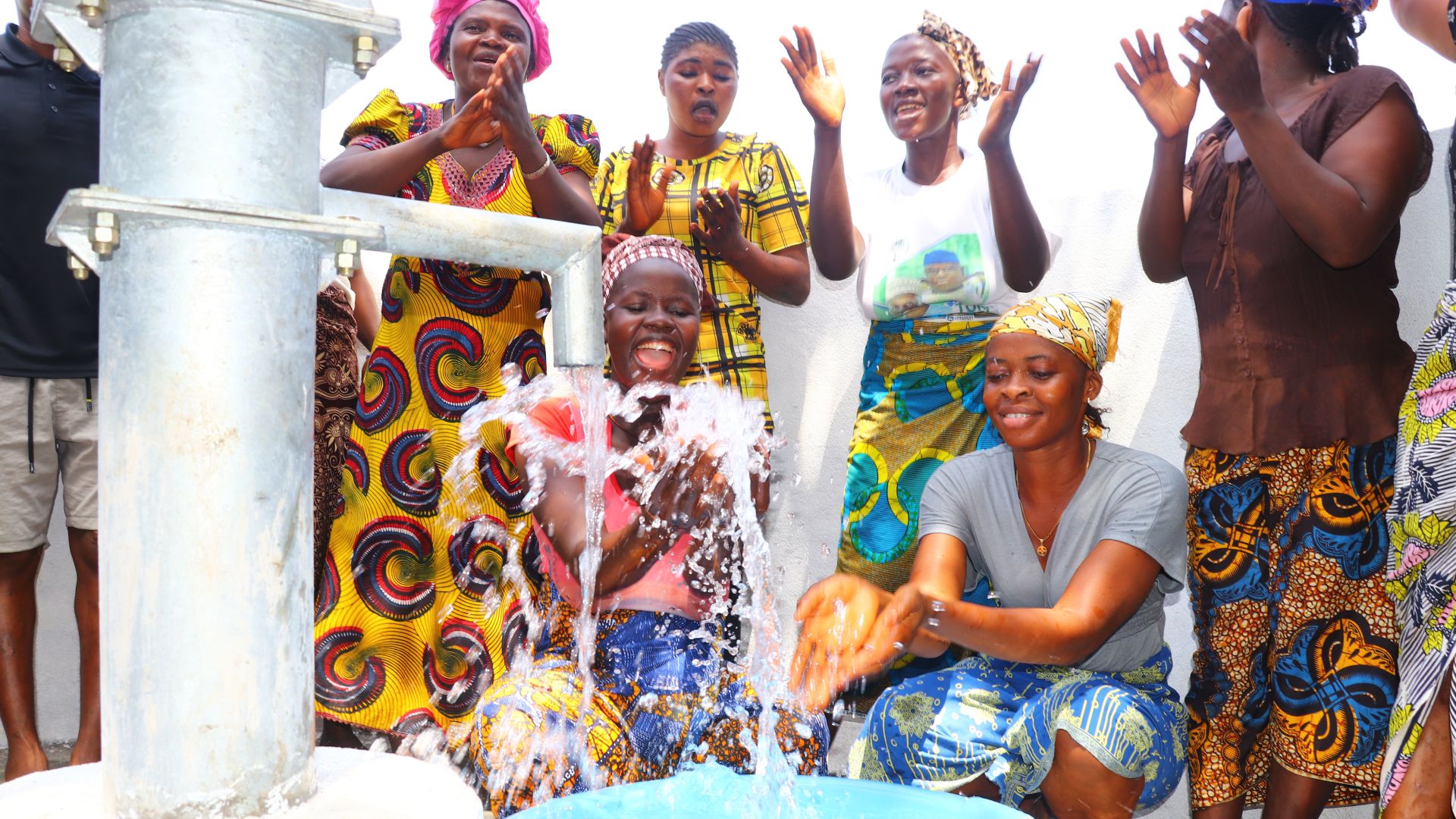The 167 people of the Komrabai Community struggle to access sufficient water. They rely on water from a distant swamp, which makes them ill. Their only other option for water is to collect rainwater during the short rainy season.

Field Officer Phillip James Allieu said, "The community is fetching water from the swamp well. The water from the swamp is not pure because of the contaminants around it. There is not enough water to use in every household in the community during the dry season. The only means of fetching enough water is rainwater during the rainy season. All the sources of water in this community are not safe. There is a great need for a sustainable water source in this community."
"The dry season (March-May) is a moment of acute water shortage in this community. The community desperately [goes] in search of water for their daily consumption. They search the swamp pits to fetch water. This leads them to drink contaminated water and get diarrhea and stomach pain," continued Phillip.
However, health issues aren't the only consequence of their water crisis. Water collection is time-consuming and takes away from essential, life-improving tasks such as school or work.

27-year-old trader Fatmata Kamara (shown below) shared, "I can only fetch water from the swamp. I produce and sell palm oil to customers. Palm oil processing is not easy; the process needs enough water that [I] could not easily get from the swamp well because of the distance. It is not easy to fetch water from the swamp because of the hilly road and the distance. More trips [for] water is causing [me] fatigue that [does] not permit me to finish my daily tasks."

"The swamp water is not clean, but it is the available water source that I can fetch every day. I fetch the swamp water and boil it before drinking. If it is [still] not clean, I filter it before drinking. The water shortage in my house is causing more workload on me. Life is difficult in this community without enough water. I am always engaged in doing domestic work, fetching water, and trading. I have no time to rest until late at night when I go to sleep," she continued.
Sadly, 15-year-old Abibatu B., shown below at the swamp collecting water, is used to how challenging life is for her and others in her community.
She said, "The most challenging task I do every day is fetch water. It is not easy to fetch enough water from the swamp because the road is bad, and the distance is far from my house. I find it hard to do more than three trips of water from the swamp to my house. The quantity I fetch is not enough to serve the activities at my house. I cannot easily get the amount of water that I need."

"It is hard to fetch clean drinking water, but we are drinking it. I can only get enough clean water from the rain. My daily commitments to fetching water and completing other domestic activities are affecting my attention [at] school. I do not have enough time to do my home reading. This is affecting me in [my] examinations," she added.
Without access to water that is close to home and safe to consume, the members of this community won't be able to do the essential tasks they need to, leaving them stuck in an endless cycle of exhaustion and poverty.
Installing a well in the community will enable people like Fatmata to find rest and children like Abibatu to spend more time studying in hopes of improving their futures.
The Proposed Solution, Determined Together...
At The Water Project, everyone has a part in conversations and solutions. We operate in transparency, believing it benefits everyone. We expect reliability from one another as well as our water solutions. Everyone involved makes this possible through hard work and dedication.
In a joint discovery process, community members determine their most advantageous water solution alongside our technical experts. Read more specifics about this solution on the What We're Building tab of this project page. Then, community members lend their support by collecting needed construction materials (sometimes for months ahead of time!), providing labor alongside our artisans, sheltering and feeding the builders, and supplying additional resources.
Water Access for Everyone
This water project is one piece in a large puzzle. In Kenya, Sierra Leone, and Uganda, we're working toward complete coverage of reliable, maintained water sources that guarantee public access now and in the future within a 30-minute round trip for each community, household, school, and health center. One day, we hope to report that this has been achieved!
Training on Health, Hygiene & More
With the community's input, we've identified topics where training will increase positive health outcomes at personal, household, and community levels. We'll coordinate with them to find the best training date. Some examples of what we train communities on are:
- Improved hygiene, health, and sanitation habits
- Safe water handling, storage & treatment
- Disease prevention and proper handwashing
- Income-generation
- Community leadership, governance, & election of a water committee
- Operation and maintenance of the water point

 Borehole Well and Hand Pump
Borehole Well and Hand Pump
 Rehabilitation Project
Rehabilitation Project



























